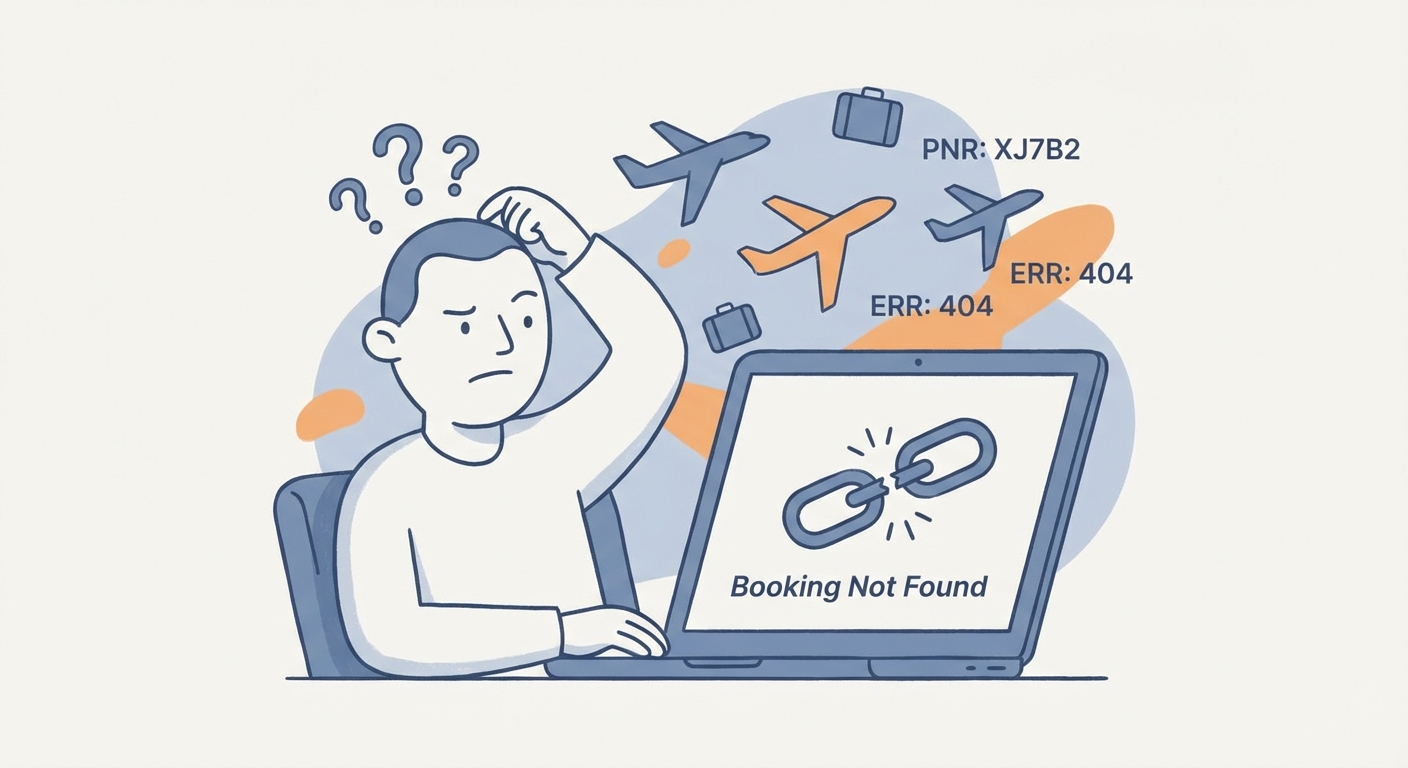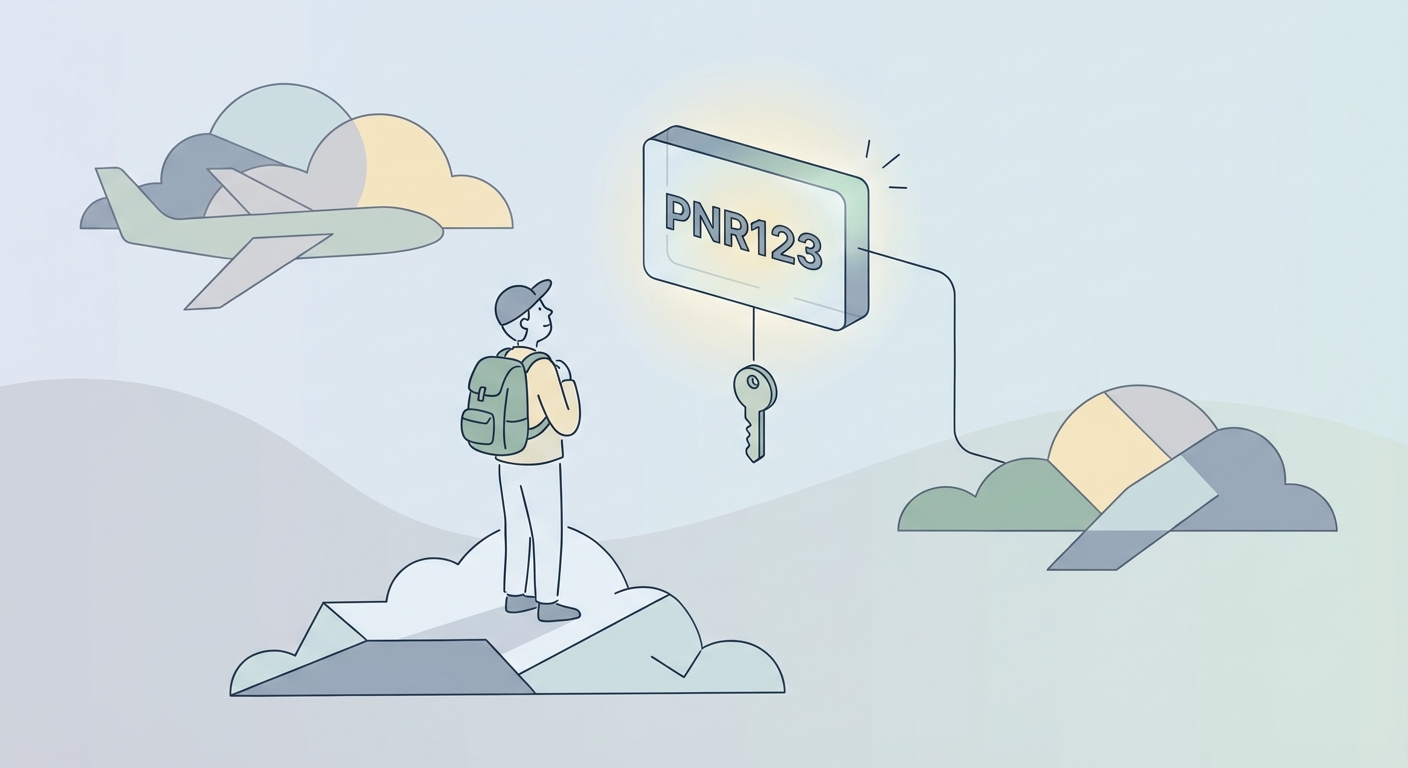Is the Global Distribution System Only for Airline Bookings?
TL;DR
- This article dives into the Global Distribution System (GDS), explaining what it is and how it works, it is not just for booking flights. We'll explore its uses for hotels, car rentals, cruises, and even tours, revealing how it streamlines travel for both agents and travelers also covering the benefits and limitations of using a GDS in today's travel industry.
Understanding the Global Distribution System (GDS)
Okay, let's dive into this GDS thing. Ever booked a flight and wondered how the heck that travel agent found exactly the right seat on exactly the right plane? Well, most of the time, it's because of something called a global distribution system, or GDS. It's way more than just flights, though.
Here's the gist:
A GDS is basically a giant middleman for the travel industry. Think of it as a super-connector that links travel agents (and now, increasingly, online booking sites like Expedia or Booking.com) with airlines, hotels, car rental companies, and other travel providers. It's like a universal translator for travel booking.
It's a centralized booking platform, but not just for airlines. Sure, that's where it started, and we'll get to that in a bit. But nowadays, a GDS handles hotels, cars, tours—you name it, if it's travel-related, it's probably in there.
- For example, imagine a small tour operator in Italy wants to sell its experiences to travel agents in the US. They're not gonna call each agent individually; they'll list it on a GDS.
- This is also how hotels manage inventory; they use the global distribution system to manage inventory and reach travel agents.
- I mean, it's a win-win.
Travel agents access the GDS to find the best deals and availability for their clients. This, in turn, gives travel providers a much wider reach. Instead of relying solely on their own websites, they can tap into a network of thousands of agents around the world. It's like having a massive sales team working for you.
So, how did this all start? It's actually a pretty interesting story.
GDS started with airline reservation systems. Back in the day, airlines needed a way to keep track of their flights and bookings. So, they created these computerized systems. The problem was, these systems were often siloed, making it hard for agents to compare options across different airlines efficiently. This led to delays and missed opportunities.
- Think of it like the olden days of manual booking—but way faster as all the data is organized in a system.
- According to a study by IAEME (International Association of Engineers and Researchers), "An empirical investigation into factors affecting service quality among Indian airline service providers," the limitations of these early, fragmented systems highlighted the need for a more central booking system that could aggregate information and streamline the booking process.
Over time, these systems evolved. They became more sophisticated and started including other travel services, like hotels and car rentals. This expansion was driven by the realization that travelers often book multiple components for a single trip, and a centralized system could offer greater convenience and efficiency. Technological advancements like improved network infrastructure and data processing capabilities enabled this broader integration.
Now, there's a few big players in the GDS game: Sabre, Amadeus, and Travelport. These are the names you'll hear most often. They're the giants that power a huge chunk of the travel industry.
Okay, so it's a big network—got it. But what's under the hood?
It's all about data exchange. The GDS relies on a sophisticated technical infrastructure to move information back and forth between travel agents and providers. It's like a constant flow of real-time data.
- This requires APIs, which is how third-party sites connect to the global distribution system. These APIs act as digital messengers, allowing different software applications to communicate and share data seamlessly. For instance, an Online Travel Agency (OTA) like Kayak or a corporate booking tool would use APIs to query the GDS for flight availability and pricing, and then display that information to their users. These APIs also facilitate the transmission of booking requests back to the GDS.
APIs and data feeds are crucial. These are the tools that allow different systems to talk to each other. Think of it like plugging different devices into the same outlet. The GDS provides structured "data feeds" – essentially, continuous streams of information about flights, hotels, car rentals, and more – which are then accessed and interpreted by these APIs. This ensures that all connected systems, from airline reservation systems to travel agent workstations and third-party booking platforms, are working with the most current information.
And it's all happening in real-time. Inventory and pricing are constantly updated, so travel agents always have the latest information at their fingertips. If seat 26B on flight 349 to Cancun just opened up, they'll see it instantly.
Beyond Airlines: Other Travel Services Available on GDS
Okay, so you think GDS is just for flights? Think again! It's like saying your smartphone is only for calls when it's got a whole universe of apps inside. Let's break down the other travel goodies hiding in those systems.
Here's what else you can snag through a GDS:
Hotel Bookings: Your Global Hotel Concierge
- Imagine trying to book hotels across multiple countries, each with different websites and languages. Nightmare, right? A GDS solves that by giving you access to a massive inventory of hotels worldwide. I mean, massive.
- Travel agents can easily compare prices, amenities (pool? free breakfast? gym?), and real-time availability all on one screen. It's like having a super-powered hotel search engine.
- Plus, GDS integrates with hotel property management systems (PMS). This means when a travel agent books a room through the GDS, the hotel's inventory is automatically updated. No double-booking chaos. The benefits go beyond just automatic inventory updates; it also ensures data accuracy, streamlines the booking confirmation process, and can even facilitate pre-arrival communication between the hotel and the guest through the agent.
- It's also beneficial for small hotels, too. They may not have the budget for huge marketing campaigns, but a GDS puts them on the map for agents around the world.
Car Rentals: Getting You on the Road
- Need a car when you arrive? No problem. GDS doesn't just stop at hotels. You can book car rentals from a whole bunch of different providers, from the big international chains to smaller, local companies.
- You can filter your search by car type (economy, SUV, luxury), location (airport, downtown), and price. It's like shopping for a car online, but with the help of a travel pro.
- Just like with hotels, the GDS integrates with car rental companies' systems. This means you get up-to-the-minute availability and pricing. No showing up to find they're out of compact cars. Similar to hotels, this integration ensures real-time inventory updates, enhances booking accuracy, and can lead to a smoother customer experience.
Cruise Bookings: Setting Sail for Adventure
- Cruises are big business, and GDS platforms know it. Travel agents can use the system to search and book cruise vacations for their clients.
- You can check out cruise itineraries, cabin options (ocean view, balcony, inside), and pricing all in one place.
- Plus, the GDS often includes access to special cruise line promotions and deals. Who doesn't love a good discount?!
Tours and Activities: Experiences Galore
- Beyond the basics, GDS offers access to a wide range of tours, excursions, and activities. Think sightseeing tours, cooking classes, adventure sports—basically anything that makes a trip memorable.
- Agents can filter by destination, interest (history, food, nature), duration, and price—making it easy to find the perfect experience for their clients.
- This is a huge boost for local tour operators who might not have the resources to market themselves internationally. It's a way for travelers to discover unique, authentic experiences they might otherwise miss.
Let's see how this all plays out in the real world, beyond just the airlines - imagine a travel agent in London is putting together a package for a family trip to Orlando. They book the flights (obviously), then use the GDS to find a family-friendly hotel near Disney World, reserve a minivan for getting around, and even book tickets for a behind-the-scenes tour of Universal Studios. All without leaving the GDS interface.
Or, picture a corporate travel manager booking a trip for an executive to a conference in Chicago. They book the flight and hotel through the GDS, then add a car service to get the executive to and from the airport, plus a guided architectural boat tour for some downtime. Easy peasy.
Now, I'm no tech wizard, but here's the simplified version of how this works:
APIs (Application Programming Interfaces): Think of these as digital connectors that allow different systems to talk to each other. The GDS uses APIs to pull data from hotels, car rental companies, and tour operators. These APIs are essential because they standardize how data is requested and received, enabling diverse systems to communicate effectively. They allow third-party booking sites, like travel aggregators or corporate booking tools, to connect to the GDS and access its vast inventory.
Real-Time Data Feeds: The GDS relies on constant streams of real-time data to keep inventory and pricing accurate. If a hotel room is booked, that info is immediately reflected in the system. This constant flow of information is critical for preventing overbookings and ensuring that users are always seeing the most up-to-date availability and pricing.
Okay, it is important to keep in mind that these systems aren't perfect. There's always a risk of bias creeping in. As YouTube explains, algorithms can sometimes perpetuate existing inequalities. Make sure you are doing research beyond the global distribution system to find the best deals.
And that's the gist of it! GDS is way more than just flights; it's the backbone of a huge chunk of the travel industry. So, you are looking for adventure?
Next up, we'll see if there are any alternatives to using a GDS for booking your travel plans...
Benefits of Using a GDS for Travel Agents and Travelers
Using a global distribution system? It is not just about the tech; it is about making life easier, right?
Here's a few ways a GDS actually helps, both for the travel agents slinging the tickets and the rest of us who just want to get somewhere cool.
For Travel Agents: Becoming Efficiency Ninjas
- Time is money, especially if you are a travel agent. Using a GDS, that's for sure, it's like giving them a serious speed boost. Instead of bouncing around multiple websites to check prices and availability, they can see everything in one place.
- Think of it like this: you're helping a friend plan a trip, and instead of opening 10 browser tabs to compare flights and hotels, you have-all-the-info-right-there. That's the power of a GDS for agents. They are able to focus on what matters: helping clients have an awesome trip.
For Travel Agents: Options, Options, and More Options
- The real win with a GDS is the sheer volume of choices it offers. It is not just limited to one airline or one hotel chain; it's the who's who of the travel world.
- That's why if you are putting together a complex itinerary, like a multi-city European adventure with specific hotel preferences and car rental needs, a GDS is a lifesaver. And- it will help agents find those hidden gems and compare all types of deals.
Travel agents aren't just booking flights; they're crafting experiences, right?
GDS lets them build super-personalized travel packages. Think flights, hotels, tours, and activities all bundled together, tailored specifically for what the customer likes.
It's like being a digital travel architect, building the perfect trip brick by brick.
Let's be honest, organizing travel plans can be messy, especially when you are dealing with multiple reservations and airlines. A GDS-simplifies booking and ticketing.
Agents can confirm bookings, issue tickets, and handle changes all within the same system. For example, if a client needs to change their flight date, the agent can often process this directly within the GDS, updating the ticket and reconfirming the new flight details without needing to contact the airline separately. It is like having a control panel for the client's entire trip. Less stress, fewer errors, and happier customers.
Okay, so what's in it for us, the travelers? Well, a GDS gives travel agents access to a bigger pool of options.
- More flights, more hotels, more everything! That means more chances to find something that really fits your needs and budget.
- Want a boutique hotel in Rome with a rooftop terrace? Or maybe a direct flight to Tokyo with extra legroom? A GDS makes it easier to find those niche preferences.
Who doesn't love a good deal? And, that's where a GDS can really shine.
Travel agents can use the system to compare prices across different providers, uncovering deals that you might not find on your own.
It is like having a secret weapon for finding discounts and promotions.
Let's face it, nobody likes jumping between a bunch of different websites to plan a trip. As mentioned earlier, a GDS lets travel agents handle pretty much everything in one go.
This, in turn, means bookings, changes, and special requests are all handled through the same channel. This offers a more seamless and stress-free booking experience.
A GDS gives travel agents access to a treasure trove of up-to-date travel info. Think flight schedules, hotel amenities, visa requirements, and all sorts of other important details.
This helps travel agents provide reliable and accurate guidance, making the trip planning process much smoother and more informed.
Now, let's face it, algorithms aren't perfect. As YouTube explains, you got to make sure you do your research beyond what the GDS offers. (GDS talks | How to start a career in tech - YouTube)
So, what's next? Are there any alternatives to using a GDS? Let's find out in the next section!
Limitations and Challenges of GDS
Okay, so GDS systems aren't all sunshine and roses, are they? Like any complex piece of tech, they come with their own set of headaches. It is not like you can just start using a global distribution system off the bat.
Here's a quick look at some of the limitations and challenges:
Cost and Complexity: Prepare Your Wallet (and Your Brain)
Think of GDS access like subscribing to a premium cable package—you're paying for all those channels, even the ones you don't watch. Travel agencies face subscription fees and transaction costs every time they use the system. And let's be real, those costs can add up.
And, let's not forget the systems themselves; they are definitely not the most intuitive things in the world. Figuring out how to find the best flights and hotels, it can take time and money for agents to get the proper training. For instance, understanding complex fare rules, navigating different booking flows for various airlines, or mastering specific search commands can require dedicated training programs.
Plus, technology never stands still, does it? GDS providers are constantly rolling out new updates and features. Keeping up with these technological advancements requires ongoing investment in both hardware and training.
Airlines and hotels, they are not exactly thrilled about paying commission fees to GDS providers. They are trying to cut out the middleman by pushing direct bookings through their websites.
Because of this, it puts pressure on travel agents to offer more competitive pricing. I mean, why would someone book through an agent if they can get it cheaper directly from the airline?
If travel agents are not just booking flights, then they have to think of what else they can offer to their clients. They've got to provide added value beyond just finding a cheap flight. This could include things like exclusive deals negotiated with hotels, curated itineraries based on deep destination knowledge, personalized concierge services for special requests, or leveraging loyalty program benefits that clients might not be aware of.
Remember when booking a flight meant calling a travel agent? That's almost ancient history now. The rise of mobile booking and travel apps has definitely shaken things up.
And then there's AI. The role of AI and machine learning in travel planning is quickly becoming more and more important.
The holy grail of travel booking is personalization. Travelers want experiences tailored to their specific interests and preferences, and this is a challenge to account for with the global distribution system.
Look, I'm not saying that GDS is going to disappear overnight. It's still a major player in the travel game. But it's facing some very real challenges.
So, what's the alternative? Well, let's explore that next...
The Future of GDS in the Travel Industry
Okay, so, what's the future looking like for GDS? Are these systems gonna be relics in a museum, or will they adapt and keep up with the times? It's a bit of both, if you ask me.
Adapting to Changing Traveler Needs: Look, people these days, they don't want just any old trip; they want their trip. The future of GDS is all about personalization.
- Think AI that learns your preferences, not just your flight times. Like, "Oh, you like boutique hotels with vegan breakfast options and a cat cafe nearby? Gotchu." GDS providers are investing in advanced data analytics and AI to better understand traveler behavior and preferences, enabling them to offer more tailored recommendations.
- The travel industry and the global distribution system needs to cater to adventure seekers, too. So we need to be able to book those obscure hiking trails in Patagonia or a diving trip to see some sharks. This involves integrating with specialized providers and ensuring that niche inventory can be effectively searched and booked through the GDS.
- A GDS that can't keep up with the trend and doesn't offer a range of options for various people will be left in the dust.
Collaboration and Partnerships: GDS companies can't do it all alone; obviously. The future is about teaming up.
- Think of it as like the Avengers, but for travel tech. GDS companies need to work with airlines, hotels, tech partners to create seamless travel experiences.
- For example, imagine a GDS that partners with, like, a healthcare provider to automatically schedule your COVID test before you fly. Or- connects with your calendar so it can find hotels closest to your meetings. These integrations would likely be facilitated through APIs, allowing the GDS to pull information from and push data to external services. For instance, a calendar integration might use APIs to read your meeting schedule and then query the GDS for travel options that fit around those appointments.
- Like, the possibilities are endless, right?
- This means they'll need to provide innovative solutions for the travel industry through APIs, and real-time inventory updates. Examples of such innovative solutions could include dynamic packaging of flights, hotels, and activities in real-time based on user preferences, offering personalized ancillary services (like seat upgrades or lounge access) at the point of booking, or leveraging predictive analytics to anticipate travel trends and offer proactive recommendations.
Think about the small, independent travel agent. They are gonna need a GDS that's easy to use, up-to-date- and can handle all the crazy requests that come their way.
Or, what about the big online travel agencies (OTAs)? They'll need GDS that can handle massive amounts of data and transactions, and still deliver personalized recommendations. It's like trying to find a needle in a haystack, but with millions of needles.
So, what's the bottom line? Are GDS systems gonna stick around?
- GDS systems aren't going anywhere anytime soon. They're still a vital part of the travel ecosystem.
- They're like the plumbing of the travel industry. You don't see them, but you'd sure notice if they disappeared. This analogy highlights their foundational role; just as plumbing is essential for a functioning building, GDS is essential for the interconnectedness and operation of the global travel marketplace, enabling the seamless flow of information and transactions that underpin countless travel bookings.
- "An empirical investigation into factors affecting service quality among Indian airline service providers" found the need for a more central booking system.
But it isn't all sunshine and rainbows - as YouTube suggests, we need to be aware of potential bias.
They'll need to keep evolving, though. As long as they keep up with traveler needs, it is here to stay.
Okay, so, that's the future of the global distribution system. But what about the alternatives-? Let's dive into that next.
Conclusion
So, we've kinda gone through the whole GDS shebang, huh? Pretty wild how something that started with airlines now touches just about every corner of travel! But, what's the big takeaway here?
- GDS is way more than just flights! It's a massive network, hooking up travel agents with hotels, car rentals, tours, and even cruises. It's a digital marketplace where agents can piece together entire trips.
- It's a game-changer for both travel agents and travelers. Agents get mad efficiency, comparing prices and booking everything in one spot. For us travelers, it means more options and, hopefully, better deals.
- But, it ain't perfect. As that YouTube video mentioned earlier, algorithms can have biases. So, uh, do your homework!
As long as GDS systems adapt, there's no reason why they can't stay relevant. They are the central nervous system of the travel industry, facilitating complex arrangements and driving efficiency across a vast network of services.







